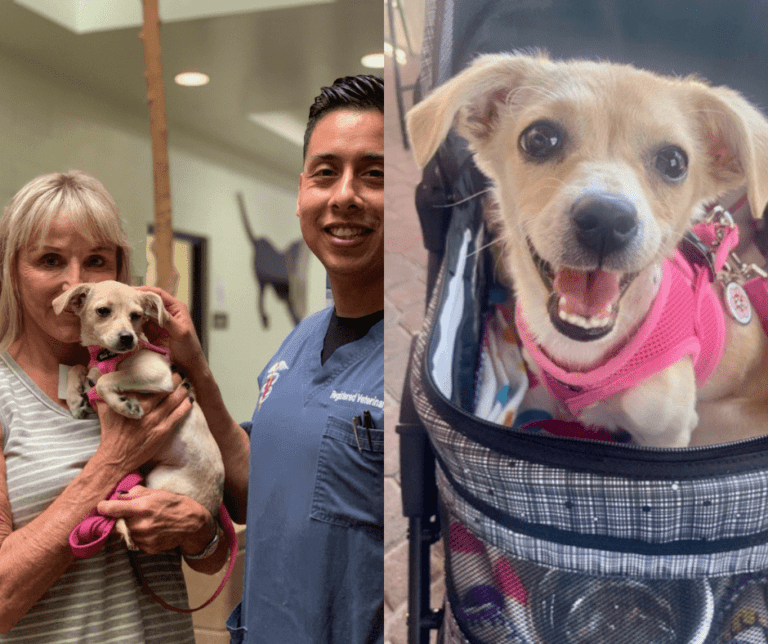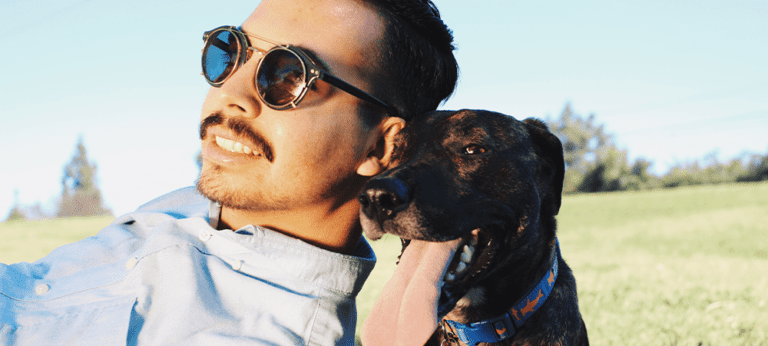Dog Anxiety: Are You Stressing Out Your Dog?

Just like with humans, dogs can experience anxiety. And while this isn’t exactly a positive emotion, it is very normal. Dogs of all shapes and sizes feel anxiety during various times. However, dog signs of stress can build to unhealthy levels and turn into an anxiety disorder. That’s when you have to deal with behavioral problems. What are the causes? How can you fix it? Here’s our guide to dog anxiety.
Is My Dog Anxious? Recognizing Dog Signs of Stress
There are a variety of dog signs of stress that might point to dog anxiety. Here are some dog stress symptoms:
- Drooling
- Pacing
- Depression
- Aggression toward animals or people
- Bathroom accidents
- Panting
- Depression
- Destructive behavior such as chewing
- Excessive barking
- Restlessness
- Compulsive or repetitive behavior
Any of these behaviors might occur after a stressful event, but they also might become habits.
Causes of Dog Anxiety
You might notice dog signs of stress after your pooch is exposed to a range of things including:
- Getting yelled at
- Separation from their owner
- Aging
- Loud noises, like fireworks
- Strange people
- Strange animals
- Hats
- Umbrellas
- Strange environments
Treatment for Anxious Dogs
So you’ve determined that your pup is super anxious by recognizing the dog signs of stress. Now what? There are several ways to ease dog stress symptoms:
- Speak to your veterinarian. They can be your best source for your pup’s mental health and let you know if there’s a physical cause for your dog’s anxiety.
- Use positive reinforcement to counter-condition your dog to replace their anxious behavior with a positive behavior, such as sitting or lying down.
- Desensitize your dog to the cause of their anxiety. This is done by slowly introducing your dog to the thing that stresses them out and rewarding them for good behavior.
- Consult a dog trainer. They’re pros when it comes to treating an anxious dog!
- Look into holistic calming aids. There are a variety of natural products that can zen your dog out. Just make sure they’re pet-safe, as many essential oils are toxic to pets. We recommend CBD!
- Consult your vet about anxiety medications. Sometimes serious cases of anxiety benefit from medications such as SSRIs and antidepressants.
How to Prevent Dog Anxiety
The trick with preventing dog anxiety is figuring out the cause of your pup’s stress. Here are ways to nip this problem in the bud before it starts or becomes a more serious issue:
- Read your dog’s body language. Learn the dog signs of stress so you prevent your pup from getting anxious in the first place.
- Socialize your dog. This means getting your dog used to a variety of new people, places and things so that they are braver and better adjusted.
- Start obedience training, either on your own or with a pro. This establishes trust and makes socialization easier.
- Make sure your dog gets enough exercise and mental stimulation. A tired dog is a happy dog! Adequate walks and playtime make dogs less likely to engage in destructive behaviors such as digging and chewing.
- Avoid your dog’s triggers. If your dog is stressed out by loud noises, keep a quiet home. If they’re scared of other pups, avoid the dog park.




